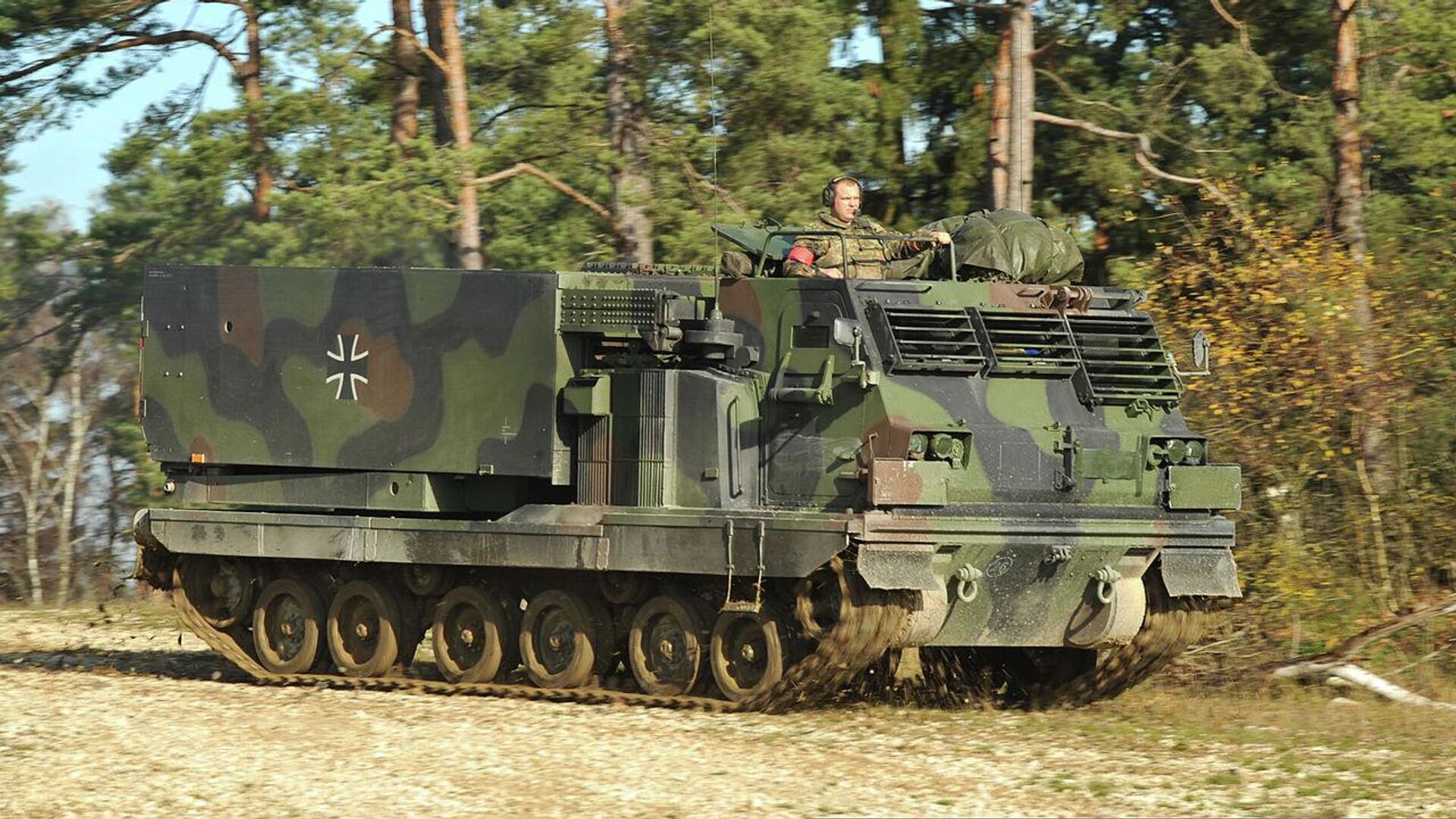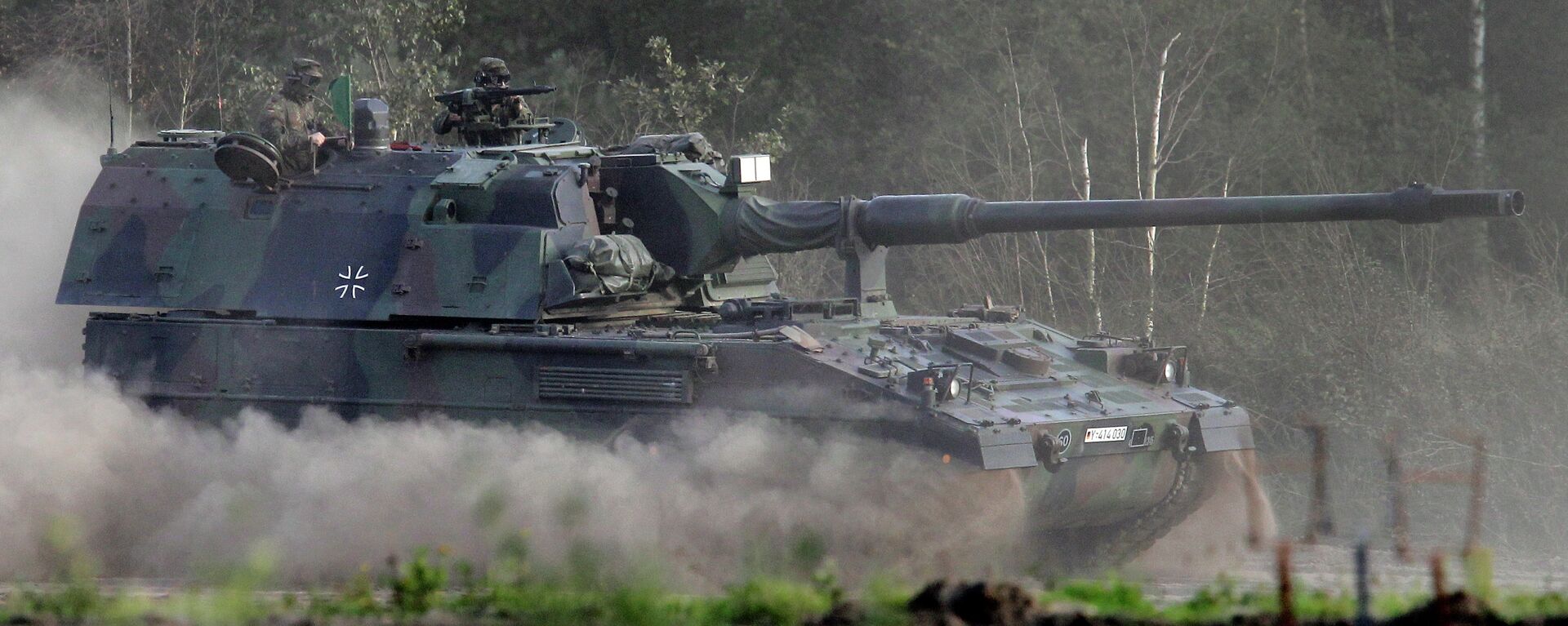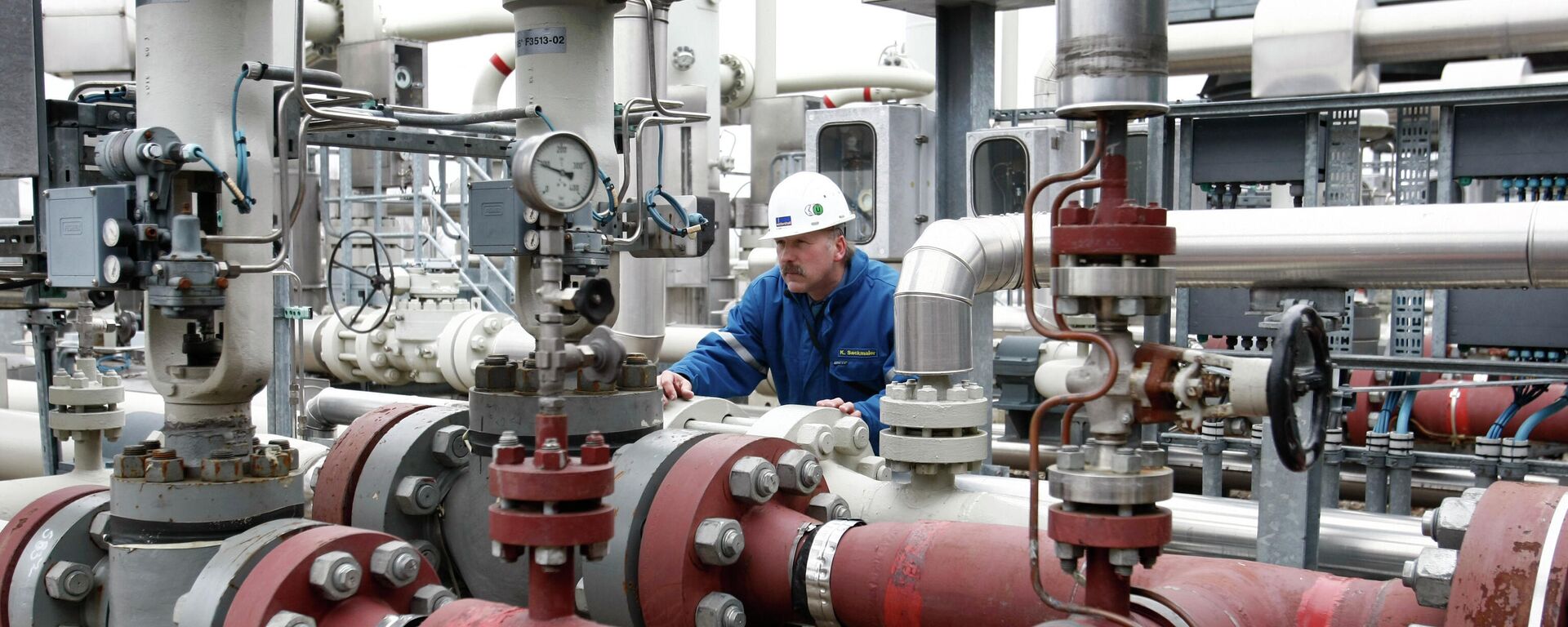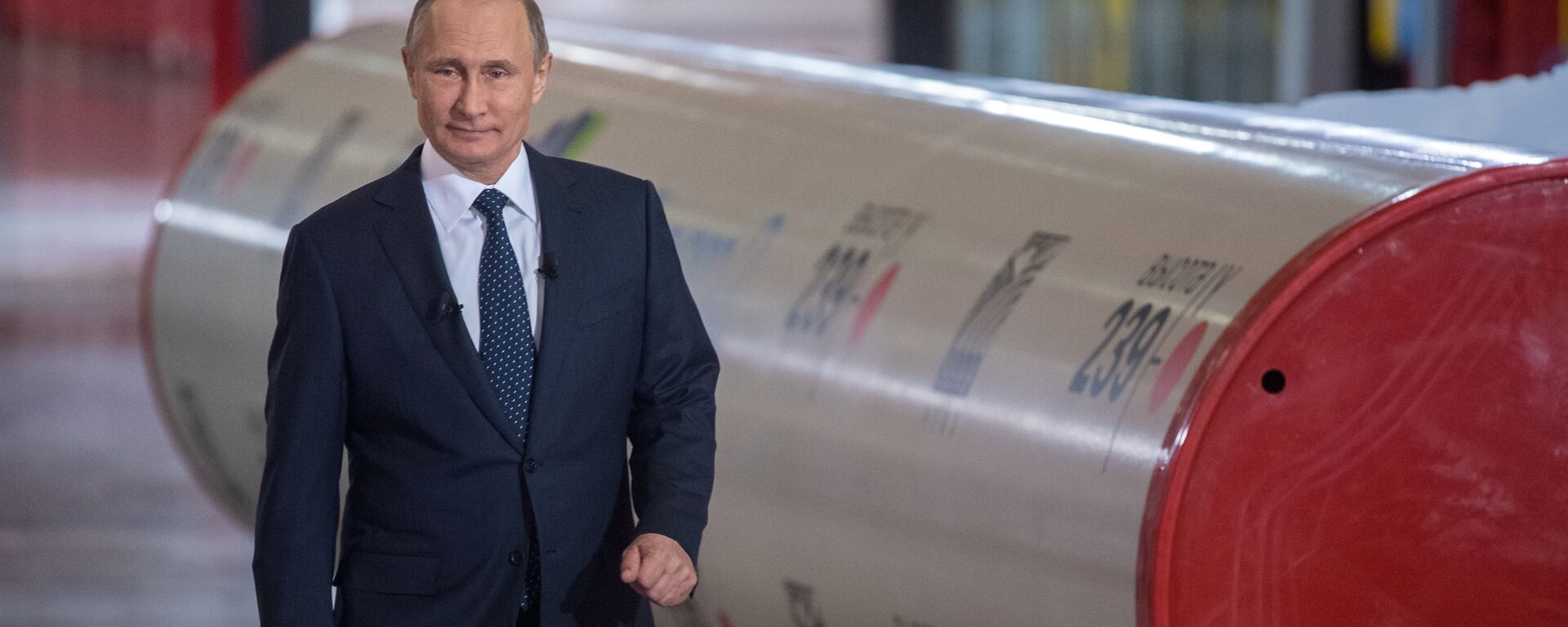https://sputnikglobe.com/20220704/germany-cant-send-ukraine-weapons-as-quickly-as-militarized-us-can-scholz-says-1096935378.html
Germany Can’t Send Ukraine Weapons as Quickly as Militarized US Can, Scholz Says
Germany Can’t Send Ukraine Weapons as Quickly as Militarized US Can, Scholz Says
Sputnik International
Berlin has promised to send Ukraine a host of heavy weapons, including self-propelled howitzers, anti-aircraft tanks and advanced anti-air missile systems. To... 04.07.2022, Sputnik International
2022-07-04T10:43+0000
2022-07-04T10:43+0000
2022-10-19T20:56+0000
germany
russia
america
weapons
olaf scholz
anger
ukraine
https://cdn1.img.sputnikglobe.com/img/07e6/07/04/1096935204_0:132:1280:852_1920x0_80_0_0_228c1dba97ecf3bd5725d2f7d8eb7626.jpg
Germany can’t deliver weaponry to Ukraine as quickly as the United States because Berlin doesn’t spend as much on defense as Washington does, Chancellor Olaf Scholz has suggested.“Together with the United States, and the United Kingdom, we decided to deliver multi-rocket launchers to Ukraine now…We are sending them and we are doing it with the means and ways we have, and with the training,” the chancellor added.Germany promised to provide Ukraine with three heavy MARS II guided multiple rocket launcher systems in early June, but deliveries were delayed amid reports of poor readiness levels in the Bundeswehr’s own inventory, plus problems related to the need to reprogram the systems, since currently they are unable to fire ammunition manufactured by the US or Britain. According to Business Insider Germany, this issue could take “months” to resolve in the worst case scenario.Sanctions Making Putin ‘Very Angry’“But to be very clear, when we decided on sanctions, together, and with our allies, we said always, we will do it in a way that we harm Putin more than us. And many countries in Europe are depending [on Russia] for historical reasons and because they are near to the place, and it is the nearest place to get the gas,” Scholz added.The chancellor dismissed warnings made by industry groups, including Germany’s Heavy Industry Association, that a halt in Russian gas deliveries will spark a recession, but admitted that things would be “very tough if we have a shortage of energy supplies,” and that Berlin “will have to prepare for a difficult situation.”The chancellor also echoed US President Joe Biden’s claims that inflation and food costs were somehow “Putin’s fault.”“The shortages of food many people in the world are seeing now as a threat to them, are the direct consequence of what Russia’s aggression against Ukraine and the war [Putin] is imposing on the country. You’re right that all the rising energy prices are also a direct consequence of his doing. And he is – he is the one that is doing the wrong things,” Scholz said.Germany, the industrial powerhouse of Europe, has been caught between US and EU-mandated sanctions on Moscow, and Berlin’s traditional reliance on Russia for energy and raw materials, including oil, gas, coal, and other key resources. German economists and business leaders have warned repeatedly in recent months that attempts to sever economic ties with Russia would cause severe economic consequences. Before the escalation of the Ukrainian crisis, Germany relied on Russia for about 40 percent of its gas and 25 percent of its oil.Germany has also faced pressure and criticism from their Ukrainian beneficiaries, who have accused Berlin of stalling weapons deliveries, and questioning the extent of the Scholz government’s “solidarity” with Kiev.“For Ukraine, it’s important whether German solidarity is worth something, or not even a cent,” Ukrainian Ambassador to Germany Andriy Melnyk said last month. “From our perspective…Germany pays several hundred million euros to Russia every day. You can buy 300-400 Marder [Infantry Fighting Vehicles] with that money. Every day Ukraine is waiting for 100 [Marders], for weeks now, but there’s no decision from the Chancellor’s office,” he complained.Germany has so far ruled out supplying Ukraine with Marders, instead offering to donate up to 50 of the IFVs to Greece in exchange for the country’s stock of Soviet-era BMP-1P IFVs, which would be passed on to Kiev. However, according to German media, Athens has only agreed to give up its BMP-1Ps when all 50 of the promised Marders are delivered, due to regional tensions with Turkey.
https://sputnikglobe.com/20220613/berlin-reportedly-snubs-kievs-request-for-arms-as-ukraine-complains-about-german-payments-to-russia-1096278929.html
https://sputnikglobe.com/20220623/gas-is-scarce-commodity-berlin-activates-2nd-of-three-stages-in-emergency-plan-amid-energy-crisis-1096591868.html
https://sputnikglobe.com/20220619/wsj-putins-energy-price-squeeze-threatens-to-hit-european-politicians-right-in-the-ratings-1096464359.html
germany
ukraine
Sputnik International
feedback@sputniknews.com
+74956456601
MIA „Rosiya Segodnya“
2022
News
en_EN
Sputnik International
feedback@sputniknews.com
+74956456601
MIA „Rosiya Segodnya“
Sputnik International
feedback@sputniknews.com
+74956456601
MIA „Rosiya Segodnya“
germany, america, weapons, olaf scholz, anger, ukraine
germany, america, weapons, olaf scholz, anger, ukraine
Germany Can’t Send Ukraine Weapons as Quickly as Militarized US Can, Scholz Says
10:43 GMT 04.07.2022 (Updated: 20:56 GMT 19.10.2022) Berlin has promised to send Ukraine a host of heavy weapons, including self-propelled howitzers, anti-aircraft tanks and advanced anti-air missile systems. To date, only some of the howitzers have been delivered, and Ukrainian officials have wondered aloud whether cooperation with Germany is “worth something, or not even a cent.”
Germany can’t deliver weaponry to Ukraine as quickly as the United States because Berlin doesn’t spend as much on defense as Washington does, Chancellor Olaf Scholz has suggested.
“I think you should understand that there is a difference if a country like the United States spends that much for defense, which is a very big investment, and you have a lot of weapons at your stocks,” Scholz
said, speaking to CBS News on Saturday, dismissing his interviewer’s assertion that Germany was stalling on arms deliveries.
“Together with the United States, and the United Kingdom, we decided to deliver multi-rocket launchers to Ukraine now…We are sending them and we are doing it with the means and ways we have, and with the training,” the chancellor added.
Germany promised to provide Ukraine with three heavy MARS II guided multiple rocket launcher systems in early June, but deliveries were
delayed amid reports of poor readiness levels in the Bundeswehr’s own inventory, plus problems related to the need to reprogram the systems, since currently they are unable to fire ammunition manufactured by the US or Britain. According to Business Insider Germany, this issue could take “months” to resolve in the worst case scenario.
Sanctions Making Putin ‘Very Angry’
Asked to comment on the ‘financial lifeline’ Germany continues to provide Russia by purchasing energy supplies from Moscow, Scholz insisted that Russian President Vladimir Putin “cannot buy anything from the money he’s getting from us because he will –he has all these sanctions on imports for modern technologies and things he is looking for. So this is what is making [him] very angry,” he said.
“But to be very clear, when we decided on sanctions, together, and with our allies, we said always, we will do it in a way that we harm Putin more than us. And many countries in Europe are depending [on Russia] for historical reasons and because they are near to the place, and it is the nearest place to get the gas,” Scholz added.
The chancellor dismissed warnings made by industry groups, including Germany’s Heavy Industry Association, that a halt in Russian gas deliveries will spark a recession, but admitted that things would be “very tough if we have a shortage of energy supplies,” and that Berlin “will have to prepare for a difficult situation.”
The chancellor also echoed US President Joe Biden’s claims that inflation and food costs were somehow “Putin’s fault.”
“The shortages of food many people in the world are seeing now as a threat to them, are the direct consequence of what Russia’s aggression against Ukraine and the war [Putin] is imposing on the country. You’re right that all the rising energy prices are also a direct consequence of his doing. And he is – he is the one that is doing the wrong things,” Scholz said.
Germany, the industrial powerhouse of Europe, has been caught between US and EU-mandated sanctions on Moscow, and Berlin’s traditional reliance on Russia for energy and raw materials, including oil, gas, coal, and other key resources. German
economists and
business leaders have warned repeatedly in recent months that attempts to sever economic ties with Russia would cause severe economic consequences. Before the escalation of the Ukrainian crisis, Germany relied on Russia for about 40 percent of its gas and 25 percent of its oil.
Germany has also faced pressure and criticism from their Ukrainian beneficiaries, who have accused Berlin of stalling weapons deliveries, and questioning the extent of the Scholz government’s “solidarity” with Kiev.
“For Ukraine, it’s important whether German solidarity is worth something, or not even a cent,” Ukrainian Ambassador to Germany Andriy Melnyk
said last month. “From our perspective…Germany pays several hundred million euros to Russia every day. You can buy 300-400 Marder [Infantry Fighting Vehicles] with that money. Every day Ukraine is waiting for 100 [Marders], for weeks now, but there’s no decision from the Chancellor’s office,” he complained.
Germany has so far ruled out supplying Ukraine with Marders, instead offering to donate up to 50 of the IFVs to Greece in exchange for the country’s stock of Soviet-era BMP-1P IFVs, which would be passed on to Kiev. However, according to German media, Athens has only agreed to give up its BMP-1Ps when all 50 of the promised Marders are delivered, due to regional tensions with Turkey.







